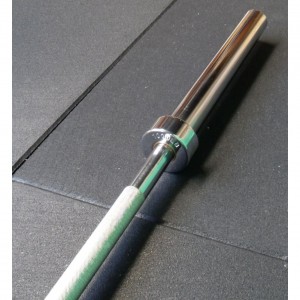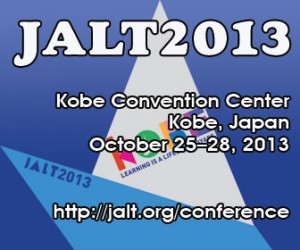conference extensive listening extensive reading materials online resources presentations teaching
by sendaiben
1 comment
Oxford Day 2013
I’m really pleased to be part of Oxford Day 2013, to be held in Tokyo on November 23rd.
You can see more information here.
My workshop is from 13:00 to 14:00:
Maximising input through extensive reading and listening resources (Room 2)
Teachers and learners all know that the way to get better at English is to get a lot of input (through extensive reading and listening) and practice (through speaking and writing). The hard part is actually doing that day in, day out. One important factor is whether learners can find content at their level that interests them. This 60-minute workshop will introduce a variety of resources, both online and off, suitable for all levels, as well as how to best introduce them to learners in a way that encourages and motivates.
It really is a great lineup, it’s free, and you even get a complimentary lunch 😉
Register here, and I hope to see you there.
Building habits (restarting from scratch)
“Most people overestimate what they can do in one year and underestimate what they can do in ten years.”
(Bill Gates)
As long-time readers will know, I broke my ankle in March. It still hurts from time to time, but I think it’s pretty much as recovered as it is going to get.
On Friday, I went to the gym for the first time in about nine months.
I’m going to restart the program I was using before, so did a series of exercises with an empty barbell.
It felt great.
The real challenge though is going to be doing the program consistently. It’s designed as a three-times-a-week program, but with my weekly schedule twice a week (Mondays and Fridays) is going to work better. Showing up, week in, week out, on rainy days and days when you are tired or when you are busy is really hard.
Doing things consistently is the key to success in any venture, and I am going to write about my weight training on here from time to time to keep myself accountable.
Of course, this same principle is true in saving, investing, work, writing, and pretty much any other field of endeavor. I suspect building up self-control and seeing success will transfer to other areas of my life, especially as historically I have not been great at doing things consistently (this blog is a nice exception to the rule!).
What do you want to achieve?
JALT National Conference 2013
I was lucky enough to be able to attend the JALT National conference last week, held in Kobe.
I think this was my third JALT national conference, and strangely I think it was also the one I liked the most.
I say strangely because I actually came down with a bad cold on Thursday night, and spent much of my time in Kobe feeling hungover -despite not drinking a drop for the last couple of weeks! It was probably the least social conference performance I have put on for a while, only managing to speak to a few people and skipping all the social events.
The thing about JALT national is that it is so big that there is the potential to have all sorts of different experiences, depending on what you do and which sessions you go to. In the past I have felt the average quality of presentations at the national conference was not as high as the ones at smaller, more specialized conferences (like the Pan-SIG or the ER Seminar). There are also so many things going on (well over 20 simultaneous workshops in most time slots) that paralysis through too much choice is actually a real danger 🙂
So to sum up my experience of this year’s JALT national:
The Good
- Kobe was great. An attractive, convenient, interesting city.
- The venue was great too. Easy to get to and suited to purpose.
- The keynote speeches were great this year. I saw three of them. Interesting and thought-provoking.
- The cafe at the back of the EME was pretty good, fast and tasty (good iced coffee too).
- Keith Folse was fantastic. Great speaker, and I’m really glad to have found his textbooks (we’re talking about introducing a writing course at TU). Here’s a video of his keynote in Korea in 2011.
- The sessions I went to were almost all good.
- I did manage to meet some new people and talk to some people I hadn’t spoken to for a while.
The Bad
- Having a bad cold was not fun.
- My hotel, due to lack of planning on my part, was on a different island to the venue, resulting in a 40-minute, three-train commute each morning. Oops.
- The venue, while great, consisted of three buildings and it took me until the morning of the second day to get it straight in my head. Memo to self: go in on the Friday evening and figure out the venue.
- I don’t like paying 2000 yen to rent a projector for my presentation, especially when they belong to JALT and were bought with donations from the SIGs… on top of the not cheap fee to attend the confenrence seems a bit much.
- I missed a lot of people I had been wanting to talk to.
Things I learned
- Lots of assumptions I had about bilingualism might not be true. Need to do a lot of reading.
- Xreading has incredible potential. If they are able to do half of the things they are planning to, we might end up adopting their extensive reading system.
- The Great Writing series looks incredibly interesting.
- Communicating with parents may well be the key to a successful English school. Lots to work on.
- Cambridge English might be okay as private language schools go (I have doubts sometimes) 🙂
Overall
Despite worries about the typhoon and how it would affect flights, etc. and that damn cold, this was a very smooth and enjoyable conference. I had a great audience at my workshop and ended up learning several new, pertinent things over the three days of the conference. The organizers and volunteers should all feel very satisfied and proud of themselves.
Anyone else make it to JALT National this year? What good things did I miss?
conference curriculum extensive reading high school presentations university
by sendaiben
leave a comment
Step-by-step Extensive Reading Program Development
This is my workshop from the JALT national conference 2013: Step-by-step ER Program Development.
If you are interested in the topic, you can still get a free copy of our bilingual handbook for teachers here.
More thoughts on (elementary school) English
I’ve had a few interesting conversations about this in the last couple of days, so I thought it might be good to summarize some of the ideas here.
Here is a Yomiuri article (in Japanese) that summarises the proposals. Basically the government is leaning towards establishing English as a subject in elementary school years five and six. Being a subject would mean that students would receive grades, use textbooks, have three classes a week, and be taught by specialized teachers.
English (or international fun happy studies, or whatever they end up calling it) would also be introduced into years three and four as an activity: one class a week, no grades or textbooks, sounds like taught by homeroom teachers. Basically what the older kids are doing now.
The Good
- English in ES will have more legitimacy as a subject.
- Students will have more contact hours.
- The government has recognised that specialized teachers will be necessary.
- Younger students will have the chance to start with English.
The Bad
Basically nothing is bad as such in the announcement, but there are several important uncertainties:
- We don’t know how the government intends to recruit/train the ‘specialised teachers’.
- We don’t know how the curriculum will be developed.
- We don’t know what kind of materials will be available to teachers.
My Prediction
If we look at how things have turned out in the past with previous educational reforms, we don’t have much to be confident about.
I attended Cory Koby’s interesting presentation yesterday at the JALT National Conference, on the topic of the new Course of Study for Senior High School. He explained that although MEXT can issue recommendations, ultimately it is up to boards of education, schools, and individual teachers to carry them out.
I suspect that schools will not end up with experienced, English-speaking teachers for these classes. I suspect that the materials will be much the same as the ones we see now, and I suspect that the usual companies will seek to profit by offering inappropriate technological solutions.
The disconnect between policy makers and implementation can be particularly wide in Japan, and much as with previous policies (including the current ‘teach in English’ edict) I fear this will not trickle down to the chalkface.


